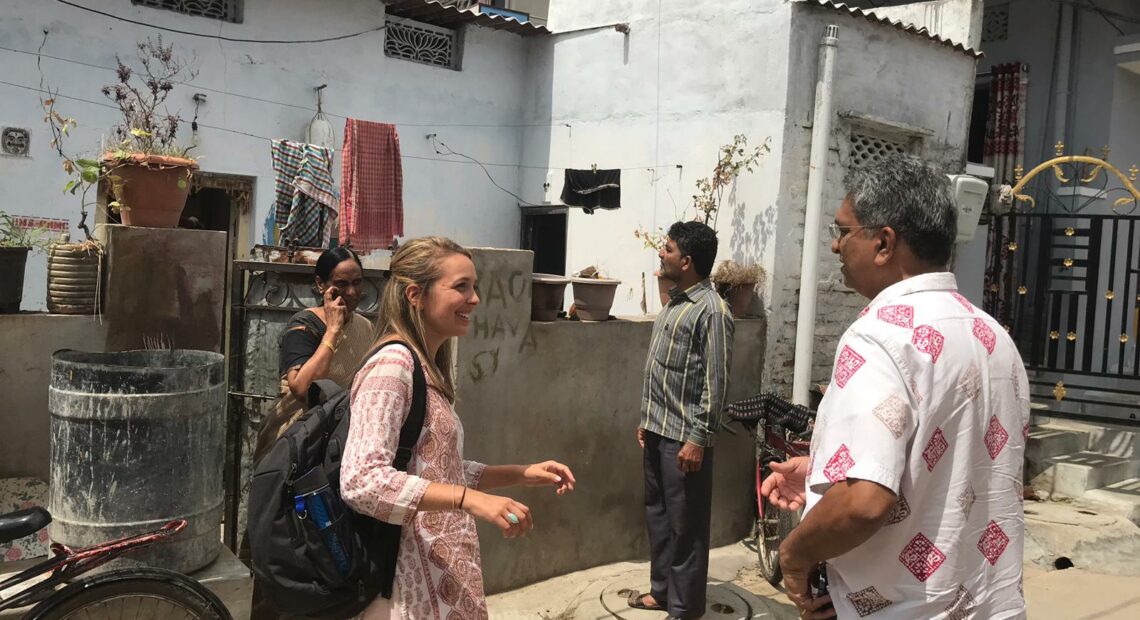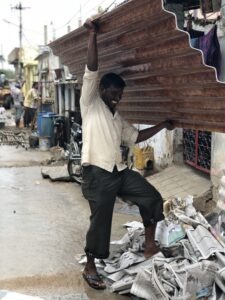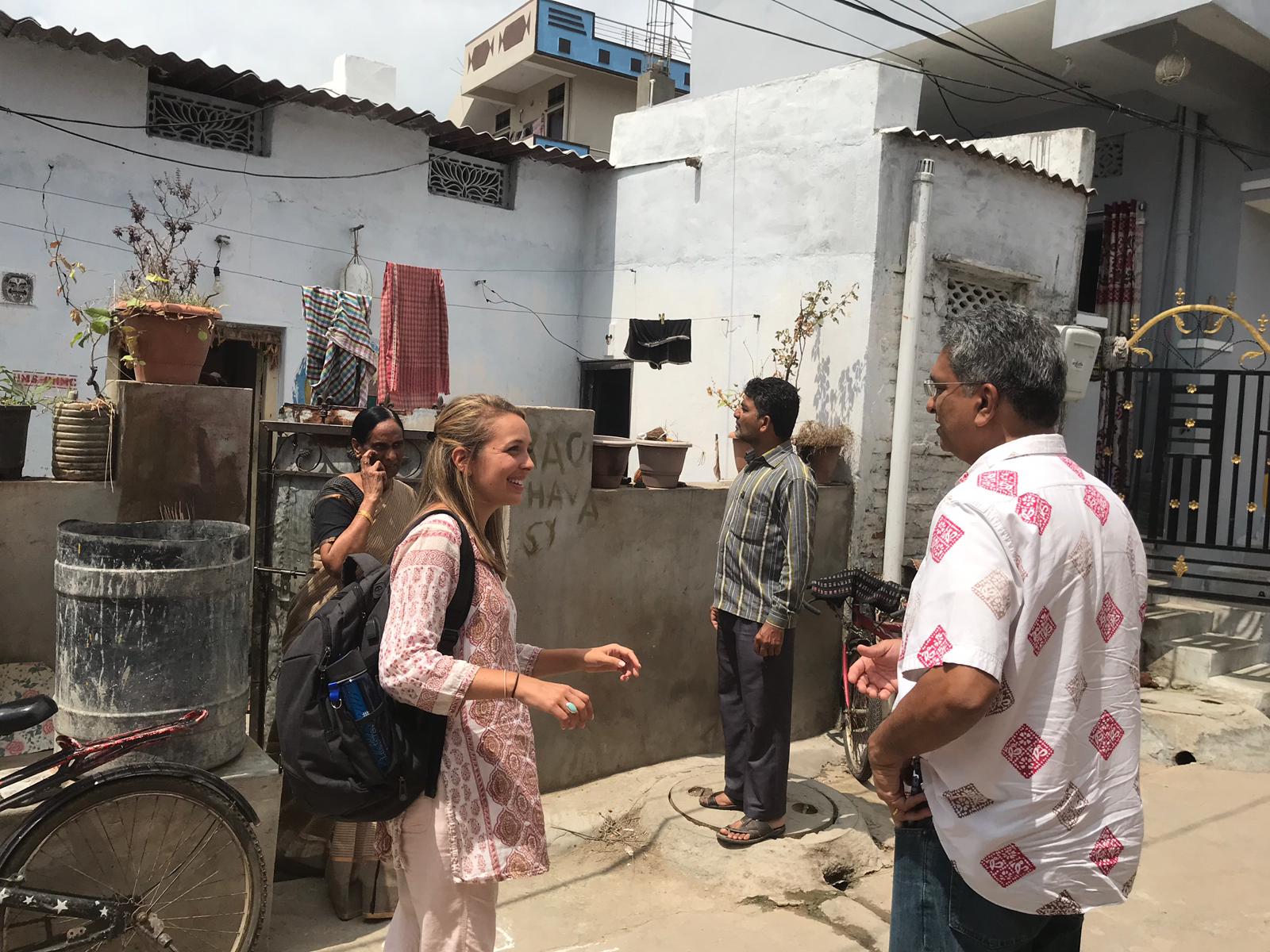
WSU Researchers And Tacoma Eco-Building Company Receive Grant To Create Affordable, Sustainable Building Material
Listen
(Runtime 1:39)
Read
WSU researchers and an eco-building startup in Tacoma are teaming up to create affordable and sustainable roofing for consumers across the world.
They have a goal— to make roofing material that is sustainable, adaptable to different parts of the world, and affordable for people living on less than $5 a day.
Dr. Vikram Yadama is a professor at Washington State University and a researcher at the university’s Composite Materials and Engineering Center. Alexa Bednarz is CEO and founder of Eco Shelter Inc.
Bednarz identified a resin soaked, woven bamboo matting that could be used for roofing created by IPIRTI (Indian Plywood Industries Research and Training Institute) in Bangalore, India. Eco-Shelter has been beta-testing the prototype in India since 2018 to figure out how to make it better.

A man carries the woven, bamboo roofing material prototype created by Alexa Bednarz. Courtesy of Alexa Bednarz.
“How can we improve it and make it not only more cost effective, but how we can improve its performance and usability for end users on the market,” Bednarz says.
Bednarz’s teammate on the project, Yadama, has been researching how to develop wood strand composite materials. He’s long been interested in wood and bamboo, as being more sustainable, because they store carbon and are renewable.
“Can you imagine if we can only show that this material can be used for building products and so forth that can be also grown continuously in a managed fashion?” Yadama says.
Bednarz and Yadama have received a $1million National Science Foundation award to work toward achieving that goal.
They are striving to make the new material work as replacements for corrugated metal roofing used around the globe, which are poor at insulating homes, or walling partitions, and have it in production by 2024.
Produced with assistance from the Public Media Journalists Association Editor Corps funded by the Corporation for Public Broadcasting, a private corporation funded by the American people.
CORRECTION: June 27 — This story has been updated to clarify that another research institute in India developed the original roofing prototype that Eco-Shelter Inc. has been beta-testing.
















